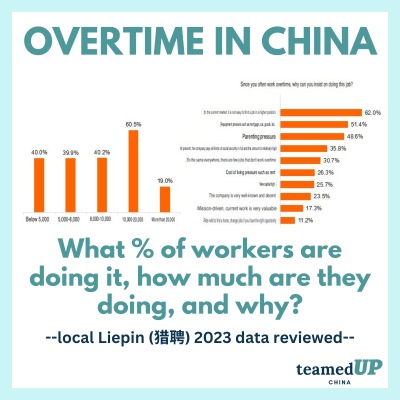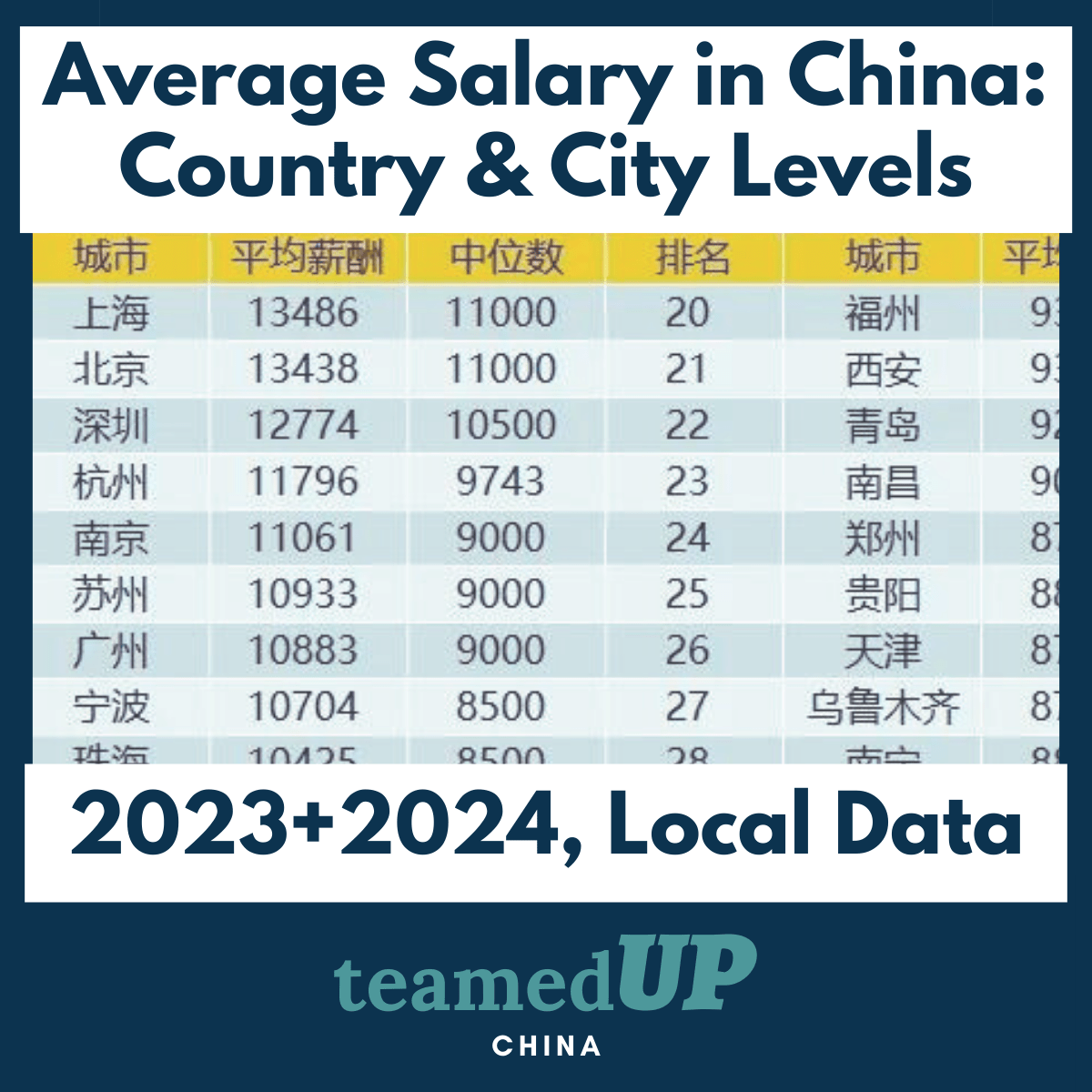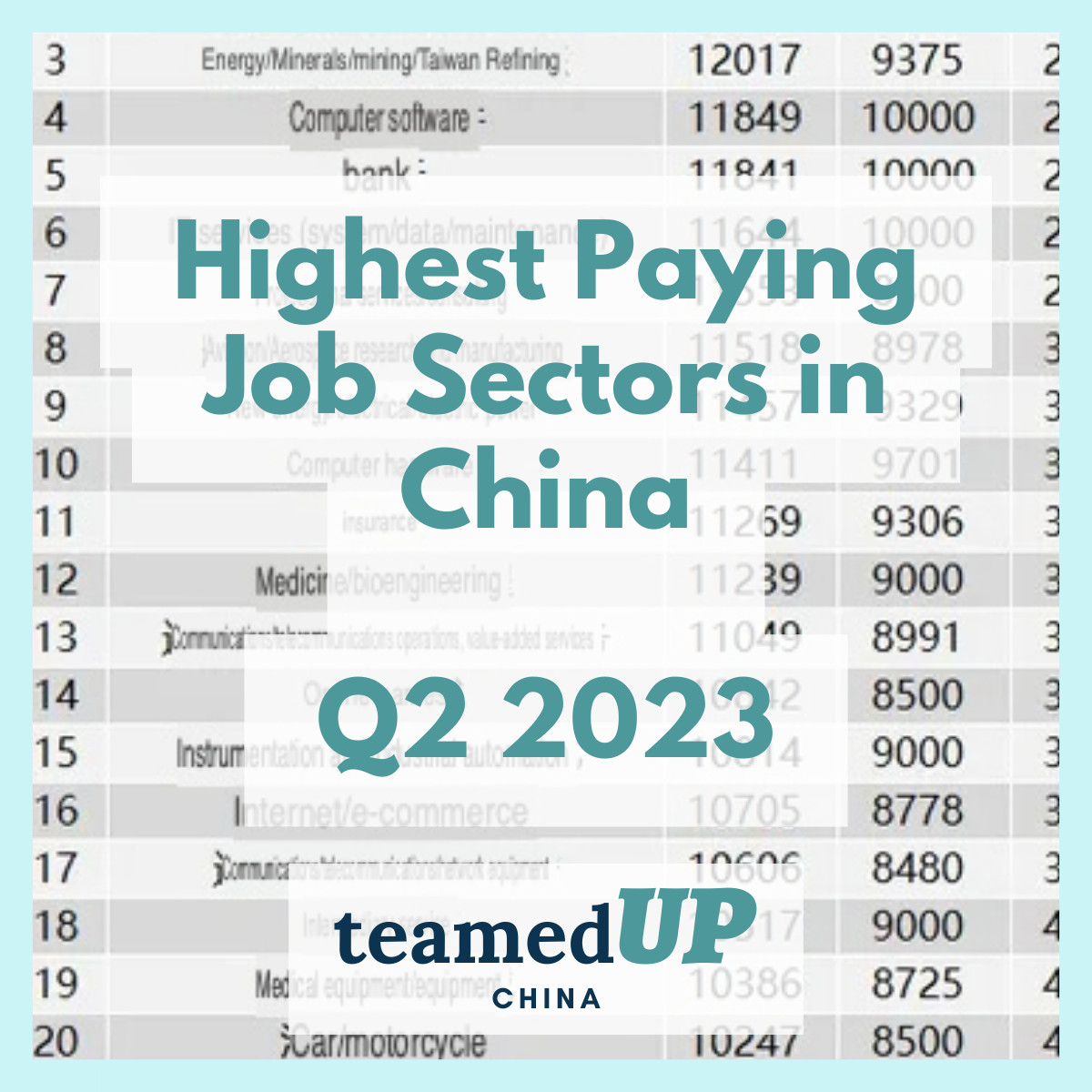One of China’s biggest job portals, Liepin (猎聘), recently released a report on ‘Talent Flow and Salary Trend Report for the First Half of 2023’. For reference, the original Chinese name of the report is ‘2023上半年人才流动与薪酬趋势报告’.
One interesting section of the report revolves around overtime in China. While many in China have heard of or worked a grinding 9-9-6 schedule, Liepin’s report aimed to shed some light on actual overtime that surveyed workers are doing in 2023.
For convenience, I’ve translated the original data into English and posted both the original and English versions here. Let’s take a look and learn a thing or two about OT in China!
Nearly 43% Of Chinese Employees Work Overtime Regularly
Around 1-2 Hours of Overtime Seems Standard
42.9% of respondents said that they work OT on a regular basis. If we break it down into how much overtime worked, the leading answer by a long shot is 1-2 hours per day.
A relatively small amount of respondents who said they DO work overtime work less than 1 hour per day or more than 3 hours of OT per day (12.9% and 10.6% respectively).
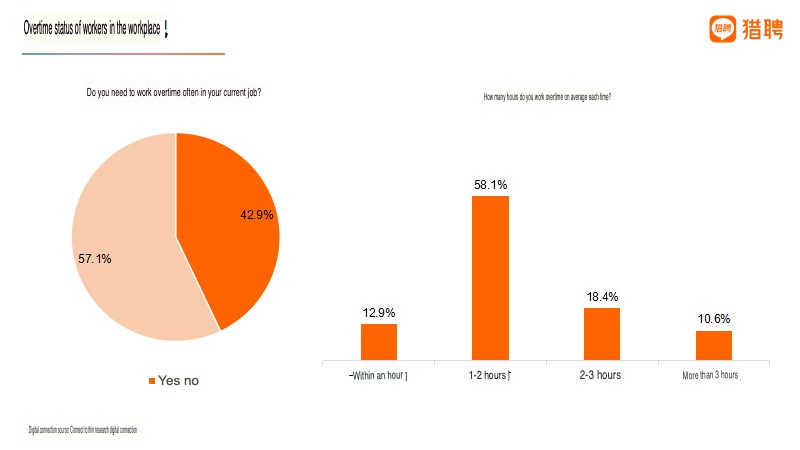
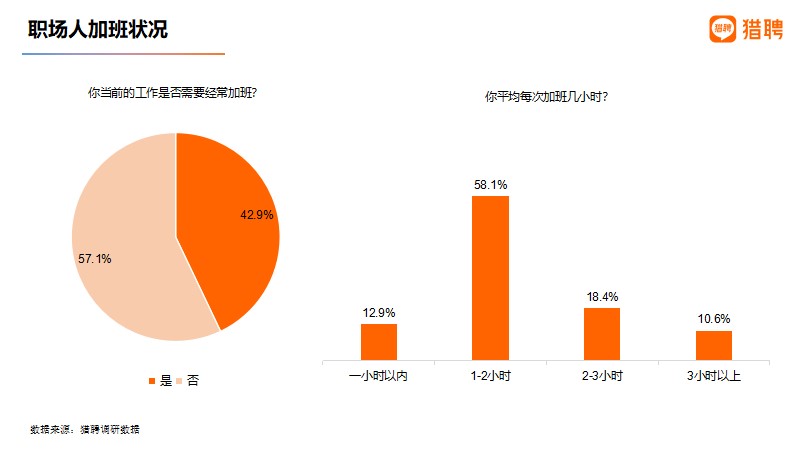
Workers in Top Tier Chinese Cities Do more Overtime
About 10% more workers in first and second-tier cities in China work overtime, compared to smaller third and fourth-tier cities. Not a huge surprise here – big cities tend to be more competitive.
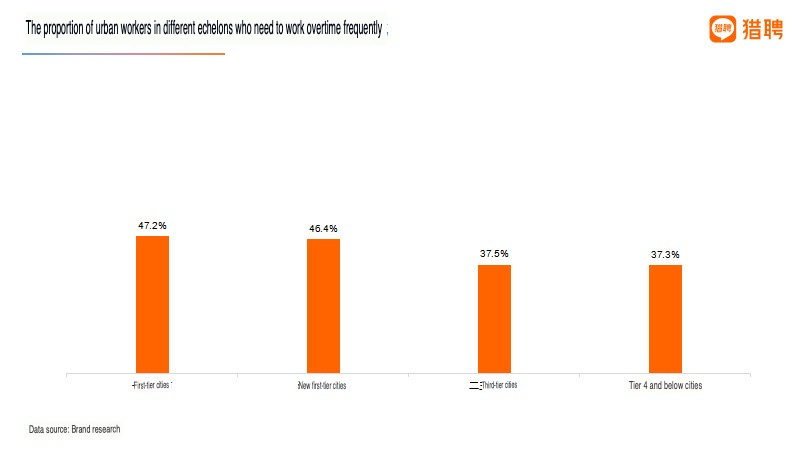
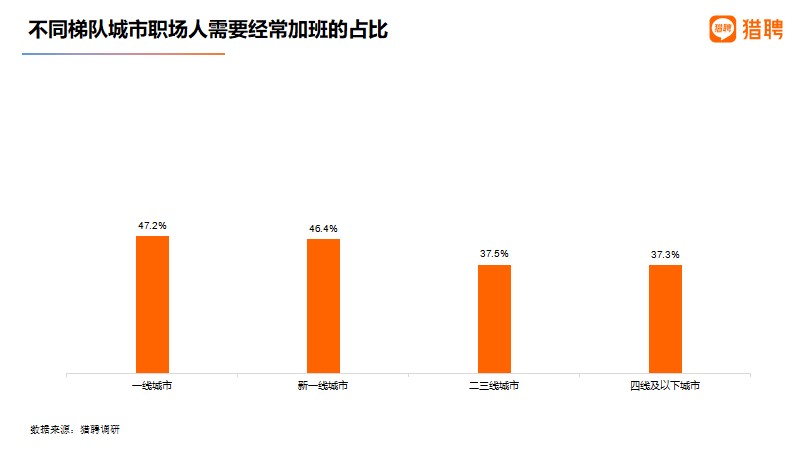
Higher-Paid Professionals Work More Overtime
About 20% fewer workers making under ¥10,000 RMB ($1,364 USD) have to work regular overtime than their higher-paid counterparts that between ¥10,000-20,000 RMB ($1,364-2,728 USD).
Interestingly this trend ends at the top, with the least amount of workers in the highest earning category (¥20,000+ RMB / $2,728+ USD) putting in overtime. Higher earners may be able to explain this because they are often:
- more experienced,
- able to get the job done faster/more efficiently, and/or
- are at a management level that doesn’t require the amount of time-consuming tasks and individual output.
Workers Cite the Current Job Market, Financial & Family Pressures for Doing So
Liepin went as far as to ask why respondents work overtime!
62% of respondents cited the current economy and job market. It’s (perceived to be) difficult to land a better job out there now.
51.4% cited financial pressures — buying a house, car, and handling expenses.
48.6% cited parental pressures — the value of giving children a great education is very high in China.
Other popular reasons for continuing to work overtime were: great benefits, a belief that overtime is ubiquitous in their industry, and the rising cost of living.
A couple of interesting ‘outliers’ are:
23.5% of OT workers stick with it because they like their company or the company brand.
17.3% of OT workers stick with it because they like their job and mission, how about that!
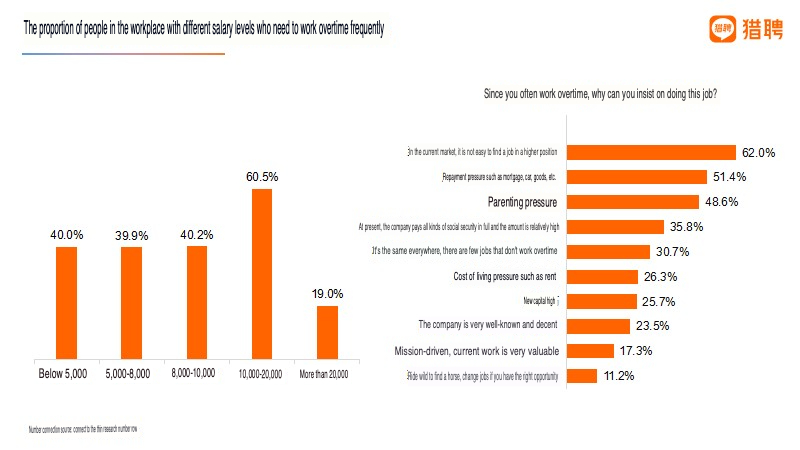

Hiring in China?
We can help, and stay within your budget!
Our China Recruiter Pro service helps companies utilize leading Chinese platforms just like Liepin. Contact Us for a free consultation to discuss hiring goals, salary & compensation budgets in China, and if TeamedUp China is the right fit to support your organization.
Let’s find your next great China-based team member today.

